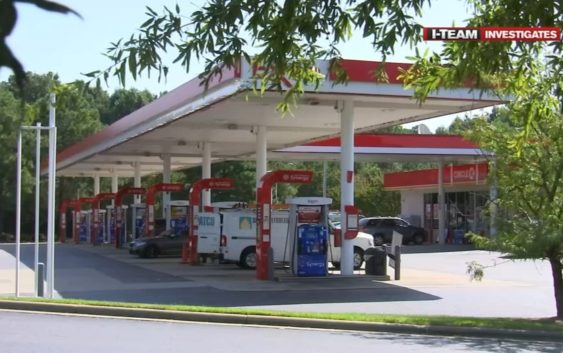- Charlotte-based marketing agency announces $20,000 Creative Campaign Grant to help communities after Hurricane Helene
- Artists transform hurricane aftermath into hoop-inspired masterpieces at Charlotte exhibit
- NC's cost for Hurricane Helene damage is nearly $60 billion, state says
- State to develop drone program to better respond to disasters like Helene, Florence
- South Carolina residents face deadline to get storm debris out to the curb after Hurricane Helene
NC gas worries ease as Colonial Pipeline aims to reopen Monday night following Hurricane Ida

Managers from nearly a dozen North Carolina oil and gas companies told ABC11 they are not too concerned about potential fuel shortages or skyrocketing prices emanating from Hurricane Ida, which hammered the Gulf Coast and led to the Colonial Pipeline briefly pausing output.
Last May, The Colonial Pipeline cyber attack exposed a critical vulnerability in how both crude oil and refined petroleum makes its way across the country and to a gas station near you.
“It’s worked for so long and so well,” Michael Harrell, President of the NC-based Jernigan Oil Company, said at the time. “It’s been a really effective way to move it, and the fastest and most economical way to move the product from the refineries and terminals on the Gulf Coast up to the eastern seaboard.”
The challenge now, however, is at the Gulf Coast, which is home to the refineries that churn the crude oil into everything from gasoline to kerosene to lubricants to candle wax.
According to AAA, refineries in Louisiana, Mississippi, Texas and Alabama make up about 45% of the nation’s refining capacity. The region also accounts for some 17% of the the United States’ oil production thanks to more more than 2,000 offshore oil platforms.
In 2005, Hurricane Katrina’s impact led to a 10-15% reduction in refinery production; the decrease of 11.7 million gallons led to the smallest output of refined crude since 1987.
Prices, moreover, also spiked to historic levels – an average of 46 cents, the largest weekly increase ever.
Now, AAA estimates there could be some increases, but nothing too dramatic.
“Motorists will likely see gas prices fluctuate leading into Labor Day weekend because of Ida’s effects on the Gulf Coast,” said Tiffany Wright, spokesperson, AAA – The Auto Club Group in the Carolinas. “Where gas prices go from here will depend on the extent of the damage and how long it’ll take for production and transportation lines to return to normal.”
North Carolina’s current gas price average sits at $2.88, which is just one-cent greater compared to last week – but is four cents cheaper than last month. Year to year comparisons, however, show an average increase of 75 cents per gallon.
Copyright © 2021 WTVD-TV. All Rights Reserved.